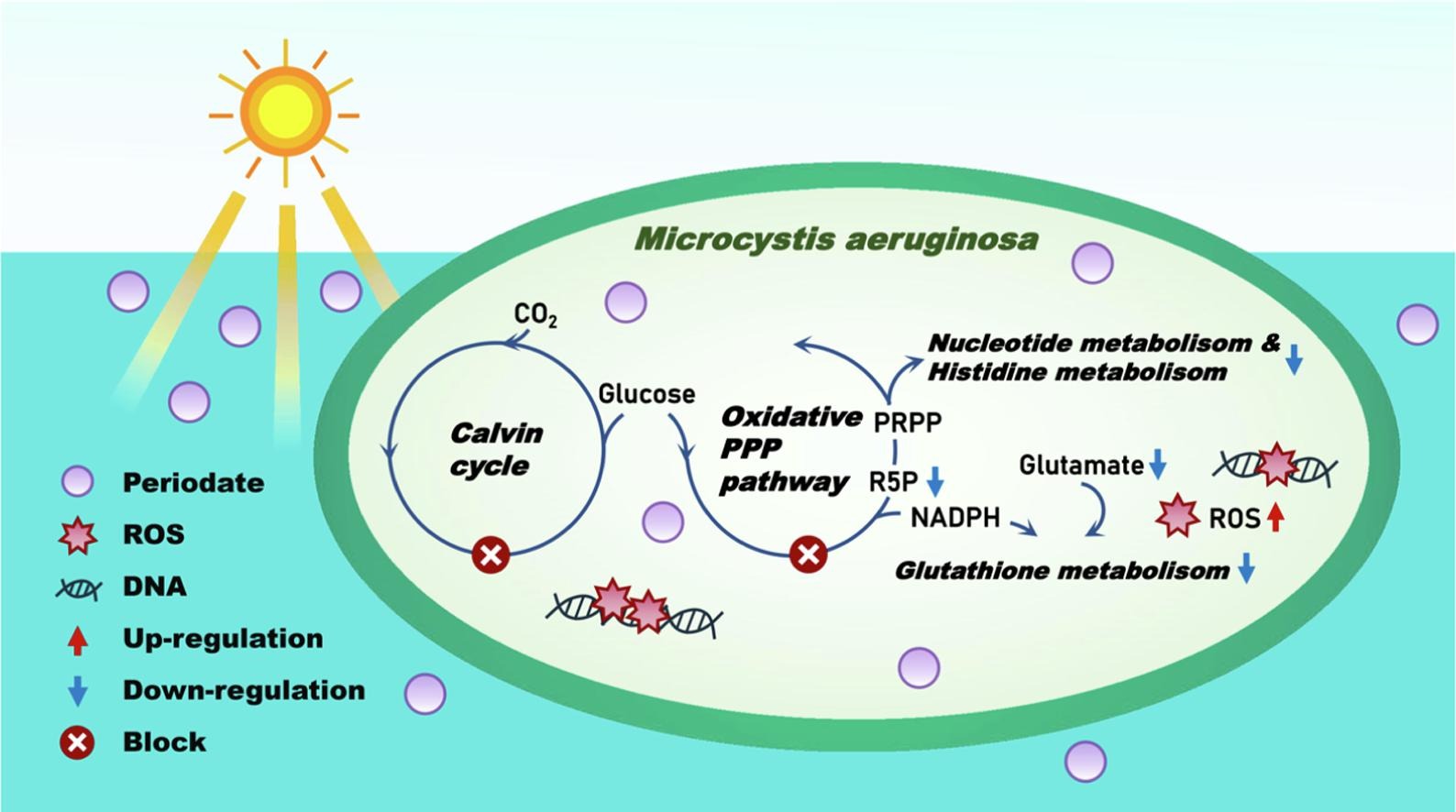Chengsong Ye, Chenlan Chen, Kaiting Zhang, Xu Wu, Wei-Feng Cai, Mingbao Feng, Xin Yu*
Environment International
https://doi.org/10.1016/j.envint.2023.108204
Published: October 2023
Abstract
Frequent outbreak of cyanobacteria is a serious problem for drinking water treatment. The microcystins released from Microcystis aeruginosa (M. aeruginosa) could cause irreversible damage to human health. Catalyst-free solar/periodate (PI) system has recently presented great potential for bacterial inactivation, whereas the application potential and underlying mechanisms of the effective M. aeruginosa control remain unclear. Our work delineated the key role of ROS that inactivating/harmless disposing M. aeruginosa in the simulated sunlight (SSL)/PI system. Singlet oxygen may specifically cause DNA damage but maintain membrane integrity, preventing the risk of microcystins leakage. The SSL/PI 300 μM system could also effectively inhibit M. aeruginosa recovery for >7 days and completely degrade microcystin-LR (50.0 μg/L) within 30 min. Non-targeted metabolomic analysis suggested that the SSL/PI system inactivated M. aeruginosa mainly by interrupting the Calvin-Benson cycle, which damaged the metabolic flux of glycolysis and its downstream pathways such as the oxidative PPP pathway and glutathione metabolism. Furthermore, the activated PI system exhibited an even better algal inhibition under natural sunlight irradiation, evidenced by the seriously damaged cell membrane of M. aeruginosa. Overall, this study reported the comprehensive mechanisms of algal control and application potentials of solar/PI systems. The findings facilitated the development of emerging algicidal technology and its application in controlling environmental harmful algae.
